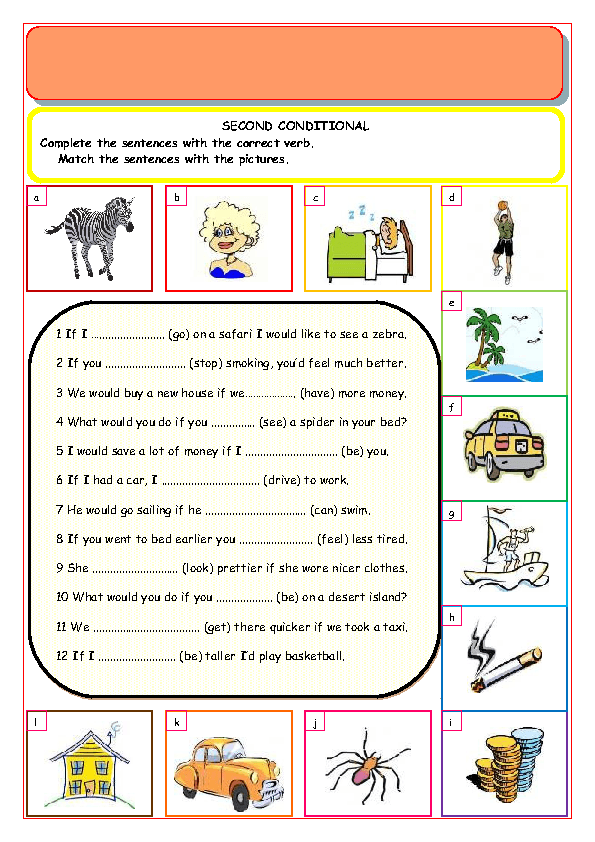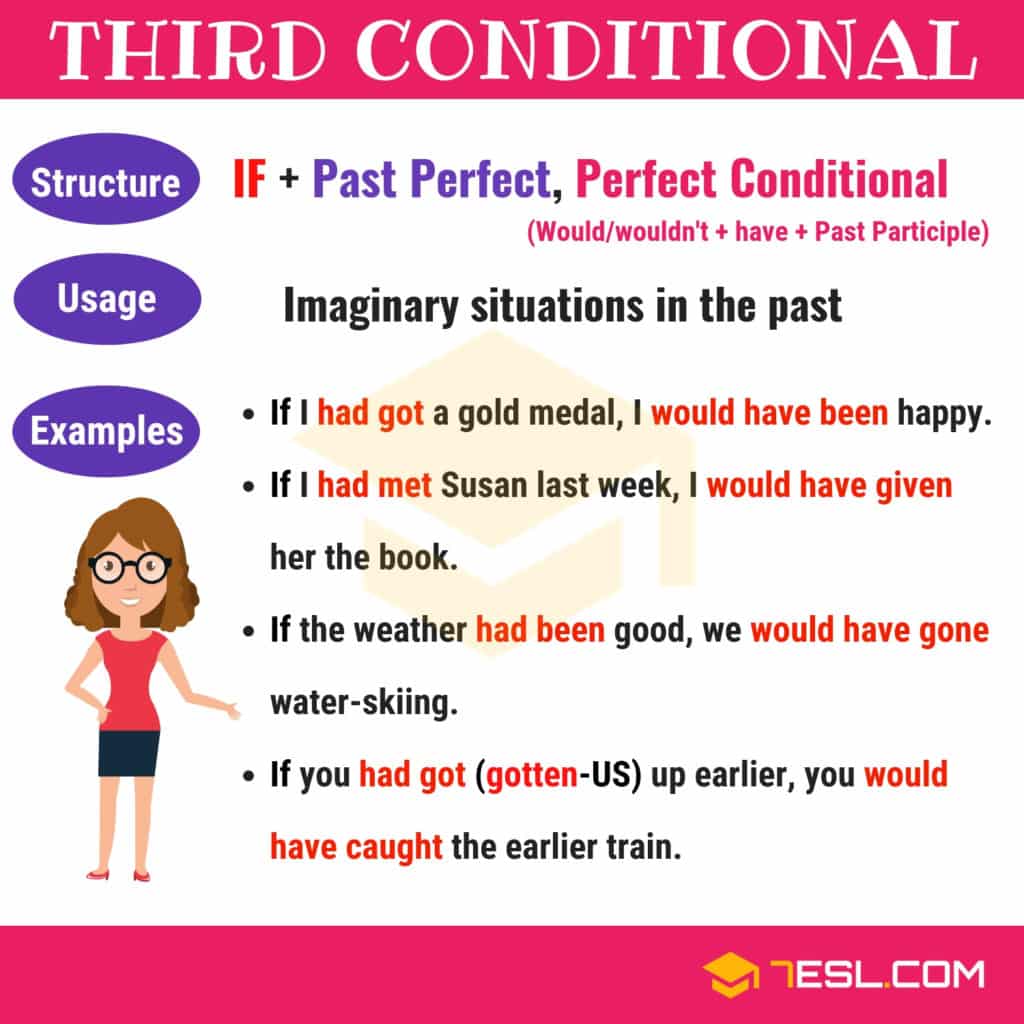
in your notebook complete the sentences with information about yourself
Exercises. Make the first conditional. Make the second conditional. Make the third conditional. Make the zero conditional. Make the first, second and third conditionals. Write your own endings to conditional sentences (PDF)

In Your Notebook Complete The Sentences With The Correct Form Of The
Students can have lots of fun and let their imaginations run wild while making second conditional sentences. Here are 30 examples of second conditional sentences. If you would like to download a PDF of these sentences, you can do so below. If I won the lottery, I would buy a big house. If I saw a ghost, I would scream.

In your notebook, write Second Conditional sentences using the words
The second conditional uses the past simple after if, then 'would' and the infinitive: (We can use 'were' instead of 'was' with 'I' and 'he/she/it'. This is mostly done in formal writing). It has two uses. First, we can use it to talk about things in the future that are probably not going to be true. Maybe I'm imagining some dream for example.

English Grammar Tenses, Grammar Quiz, Teaching English Grammar, English
Do you want to speak better English? Then you need to master the conditionals, a type of sentence that expresses a possible or hypothetical situation and its consequences. Perfect English Grammar has clear explanations and lots of practice exercises for the first, second, third and zero conditionals, as well as mixed conditionals and other variations. Learn how to use conditionals correctly.

In your notebook, complete The sentences using The second conditional
Second Conditional Sentences Examples. 1. If I had more money, I would travel the world. (I don't have enough money now, but in the hypothetical situation where I do, I'd travel the world.) 2. If she spoke Spanish, she would understand this song. (She doesn't speak Spanish now, but if she did, she'd understand the song.)

Second Conditional Sentences
We use the Second Conditional to: say what is impossible or unlikely. imagine a different present time or imagine a possible future time. express that we wish for a different reality. This is where the Second Conditional can be confusing. We use it to talk about unlikely, impossible, hypothetical, or imaginary present/future situations.

In your notebook, complete sentences 15 withtoo or enough and the
A conditional sentence is a sentence that describes the possible consequences of a hypothetical situation. Conditional sentences contain a subordinate clause that describes a hypothetical situation (usually starting with the conjunction "if") and a main clause that describes its possible results (e.g., "If I were you, I'd buy a new.

In your notebook complete sentences 16 with the correct past
When to use the second conditional. We use the second conditional to express an unreal or improbable condition and its result in the present or future: [unreal/improbable condition] [result] If I had more time, . . . I'd learn another language. If I won the lottery, . . . I'd buy a house near the sea. The second conditional - common mistakes.

Ir your neatbook complete the sentences using be going to Brainly.pl
Second Conditionals Complete the second conditional sentences. If you (study) harder, you (get) better marks in your tests. 1. if-clause: simple past|2. main clause: would + infinitive; If I (be) rich, I (travel) around the world. 1. if-clause: simple past|we can use were and was after I in second conditional if-clauses|2. main clause: would.

In Your Notebook Complete The Margaret Wiegel™. Aug 2023
Exercise 1: Second conditional. Complete the sentences with the correct form of the verbs in brackets. Use short forms if possible.

2 In your notebook, complete sentences 16 with the correct form of the
Firstly we're going to talk about the meaning, when and why you should use the second conditional. Then we're going to look at what it looks like, what words, what tenses, what punctuation are important to help you use the second conditional accurately. Then I've got a few important extra tips to help you use the second conditional correctly.

Second and Third Conditional Sentences English Grammar Here
Conditional sentences are statements discussing known factors or hypothetical situations and their consequences. We use them to communicate that something is true or happens only if something else is true or happens—that is, only under a certain condition. Complete conditional sentences contain a conditional clause (often referred to as the.

In your notebook, complete the sentences with The Second Conditional
The second conditional is used to express the consequence of an unrealistic action or situation in the present or future. The situation can be: If I won the lottery, I would travel around the world. There is a very low probability (1% chance) that the first part of this sentence (winning the lottery') will happen.

9 Sentences of Second Conditional, 9 Example Sentences Type 2
First conditional and Second conditional refer to the present or future. However second conditional sentences suggest it is less probable or imaginary. Third conditional refers to the past. There are MORE than these 4 types of conditional sentences though these are the ones that are used the most. We will look at other types in future lessons.

English Speech, Learn English Grammar, English Writing Skills, English
Conditional Sentences Type I, II or III. Complete the Conditional Sentences with the correct form (Type I, II or III). If I. am will be were had been would be would have been. stronger, I'd help you carry the piano. If we'd seen you, we. stop will stop stopped had stopped would stop would have stopped. .

The Third Conditional Conditional Sentences Type 3 Structure
This page is intended to be a resource for English learners and teachers. You can practice answering these second conditional discussion questions by yourself or with a partner. You can also write the answers in a notebook, in a digital document, or in the comments section below. To help learners feel more confident and to develop grammatical accuracy, the warm-up questions have some suggested.